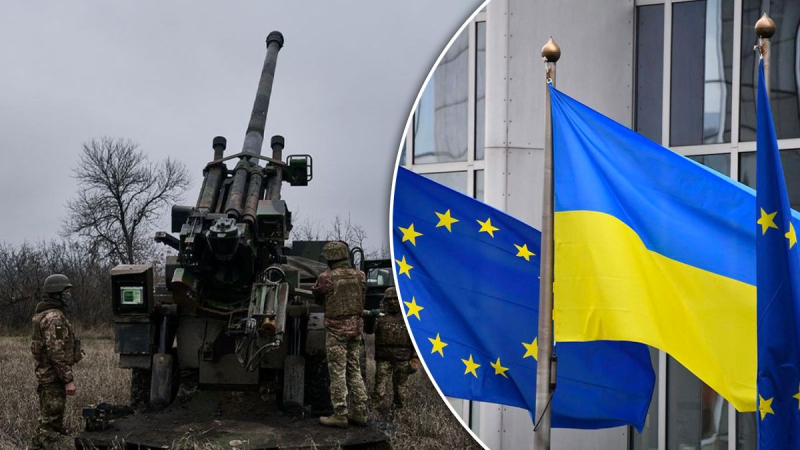
Before the start of a large-scale war, European politicians were even afraid of the thought of allocating funds for the purchase of lethal weapons for Ukraine. After February 24, everything changed. Then, in particular, it turned out that cooperation with the Kremlin was a mistake, and the Alliance should also make decisions based on military doctrine.
Analysts stated that already on the third day after the start of a large-scale war, some European politicians realized that they could no longer ignore Kyiv's requests to provide the Armed Forces with weapons and money. Actually, the chief EU diplomat, Joseph Borrell, argued at an emergency meeting with defense ministers that more assistance should be provided to Ukraine.
Buying lethal weapons for the Armed Forces of Ukraine is a taboo
In the run-up to a major invasion, it seemed impossible for Western officials to use the finances to buy lethal weapons for the Ukrainian army. However, there were forces that especially insisted on this.
Explain it to me? Because we don't provide lethal weapons? Well, we do not give lethal weapons, because there is no war. If there is a war, they need lethal weapons, don't they, Borrell asked representatives of the defense departments of 27 countries when the big war had already begun.
In addition, he insisted at the time that the fund for the support of other European countries (EPF) should be allocated funds for the purchase of weapons for Ukraine in the amount of not 50, but 500 million euros.
In solidarity with him was, in particular, the President of the European Commission, Ursula von der Leyen, who called assistance of this magnitude “a turning point.” At the same time, Charles Michel, President of the European Council, stated that this would testify to Europe's desire to promote peace.
Note! A year after the start of the full-scale invasion, the EU allocated from the EPF fund for the purchase of weapons for Ukraine an amount of not 50, not 500 million, but as much as 3.1 billion euros. This partly covered the cost of acquiring at least 325 tanks, 36 attack helicopters and over 200 multiple rocket launchers.
It is important that before the start of a large-scale war, it was allowed to allocate finance from this fund only, say, for first-aid kits or helmets – lethal weapons could not be discussed at all.
“Deepening relations with Moscow was a mistake”
Experts from the Financial Times stated that these 12 months of a big war in Europe have radically changed European defense policy. First of all, it is important that the West realized that it was a mistake to establish trade and diplomacy with the Kremlin in the hope of peace.
In addition, Europe began to engage in rearmament and canceled the direction to reduce military capacity, which has been in effect since the end of the Cold War.
Reducing defense spending gave way to rapid rearmament. The withdrawal of US troops and weapons from Europe after the end of the Cold War was abruptly cancelled. But no single decision captures the EU's adjustment to the new reality as much as the step with the EPF fund, the experts wrote.
The most difficult decision to make, oddly enough, was given to Brussels, for which the supply of lethal weapons to Ukraine has long been a red line.
Why EPF is the most important
Most European officials agree that the most important feature of this initiative – to use the EPF to arm Ukraine – is not direct funding, but the so-called “collective umbrella”. It is he who unites the EU and forces it to take initiatives. At the same time, Josep Borrell compares the use of money from this fund with investments in start-ups, which are expected to start generating profits in the near future.
How much money has the EU allocated
It can be summed up that both from this fund and thanks to other initiatives, the European Union has provided our state with military support in the amount of about 14.3 billion euros. In addition, according to the Kiel Institute for the World Economy, another 41 billion euros was provided in the form of financial and humanitarian assistance.
At the same time, in the end, here are a few more important theses from this material of the Financial Times:
- The West does not plan to stop there and only deepen cooperation in order to stop the Russian bear;
- one of the documents statutory for the Alliance states that “expenses related to operations that have military or defensive consequences” cannot be from the general budget (Article 41.2 of the Treaty of Lisbon) – in fact, a large-scale war changed everything;
- The European Defense Forces are also training some 30,000 Ukrainian troops in camps in Poland and Germany, the first such exercise in the EU's existence.

